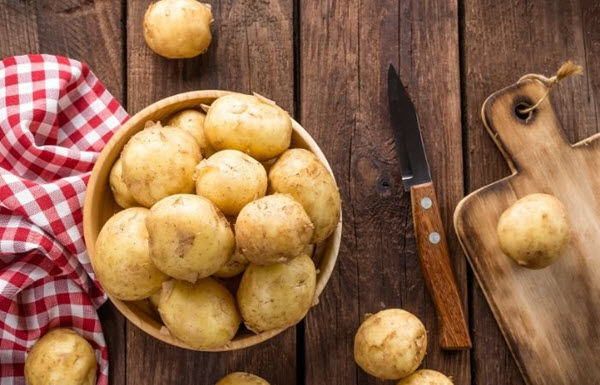You’re Wrong About These Foods Being Bad For You
By Kumari Tilakawardane
January 10, 2024 • Fact checked by Dumb Little Man

We’re constantly being told what we shouldn’t eat. That we have too much of something in our diet, that our favorite snacks are ‘bad’ for us, that we’re not “eating right”.
But what if some of those rules – about the stereotypical ‘bad snacks’ – were actually food myths? Perhaps there are some legitimate health reasons to toss certain items back in your cart.
Here are a few ‘bad foods’ that might just be misunderstood…
Beer
Now, as with all the things on this list (and in life), moderation is key. Sticking to your limits and making sure you’re not drinking so much your judgement is impaired is, obviously, essential.
However, the odd beer here or there might actually be a little bit good for you. That’s thanks to silicon, which is present in certain beers and can contribute to strong and healthy bones. Hops are known to fight against inflammation thanks to bitter acids, while beer’s low ethanol count triggers gastric acid which in turn aids with digestion.
So maybe that cold beer on a hot day isn’t actually that bad of an idea; you might actually be doing your insides some good.
Potatoes

Long considered a starchy villain for healthy diets, potatoes might actually help with appetite and digestion. Of course, you shouldn’t be piling your plate with deep fried wedges or greasy fries, but baked or roasted spuds might not be such a bad sides option.
Eaten in moderation and prepared healthily, potatoes are actually a great source of potassium. Getting enough potassium is a key part of good hydration, so a few roasted potatoes as part of a balanced diet can be a decent choice.
If you’d like to make sure you’ve got the real healthy option, go for sweet potato. Loaded with fiber, antioxidants, and anti-inflammatory properties, sweet potatoes also have a relatively low glycaemic index. So they’re, you know, sweet.
Chocolate
Everyone’s go-to comfort food, chocolate gets a bad name. It’s associated with over-indulging and decadence, and is often reserved for sugary desserts and late night treats.
However, there’s actually a lot of scientific evidence that having just a little bit of chocolate every day has huge health benefits. Go for as dark a chocolate as you can since cocoa is considered the superfood of superfoods. Dark chocolate is packed with helpful things like magnesium and antioxidants and has been linked to increases in serotonin levels, so it can help with bad moods, too.
Not bad for a so-called guilty pleasure.
Cheese

Humans have been making cheese for many thousands of years, and since we’re still on the planet it can’t be all bad, right? Despite a reputation for being cholesterol-boosting and heart failure-inducing, cheese actually has a myriad of benefits when eaten sensibly and in moderation.
“Cheese is high in calcium and B12, as well as being rich in essential fatty acids,” notes Sal Hanvey, Nutritional Consultant at YorkTest. “Essential is the key word – Omega 3 is ‘essential’ for the body, but we can’t actually produce it ourselves, so we need a food source.”
The calcium in cheese can keep your teeth and bones in tiptop shape, while its protein is a great way to keep hair shiny and skin healthy. Other potential benefits include blood sugar regulation, immune system boosts through probiotics and Vitamin K2, and making meals much more exciting.
Frozen Veggies
Some people knock frozen, pre-packed fruit and veggies for being tasteless. But actually, if you prepare them properly – for example using this roasting method – they can come out crispy and golden and delicious.
Then there are those who claim that freezing vegetables in ice leeches out their vitamin and nutritional values. However, studies have actually shown that vegetables that are frozen soon after harvesting retain much of their nutrition, making them an affordable and convenient option.
Plus, keeping your greens in the freezer means you don’t have that guilt of leaving them to languish in your refrigerator drawer.
Salt
Too much salt is definitely detrimental to your health. Having too much sodium can dangerously spike your blood pressure and put you at risk of strokes and heart disease.
However, sodium is also essential for muscle function and fluid regulation, so you need to have some in your diet. The current government guidelines suggest that consuming less than 2,300 milligrams of sodium is best practice. Then there are guidelines that suggest diabetics should try to have between 1.5 and 2.5 grams of salt in their daily diet.
So, how much sodium you should be having will depend on your own body, but cutting it out entirely is actually bad for you too. Being a little salty is always good.
Kumari Tilakawardane
I'm a writer contributing content for YorkTest, who specialize in wellness and health testing. In my spare time I'm a fan of sarcasm, procrastination, sports, rubber ducks, and cheese (in movies and food).







